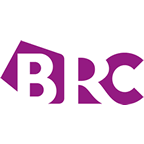London, 2017-May-27 — /EPR Retail News/ — The second estimate of the UK’s GDP in quarter one has revealed that growth so far this year has been slower than the first thought, dropping from 0.3% to 0.2% on the previous quarter.
While at first glance this may be encouraging to food retailers, when price increases are taken into account it is clear that UK consumers are shopping in fairly tricky conditions. The impact of sterling devaluation in June is now starting to filter through to prices, the Shop Price Index recorded rising food prices from February onwards, the first time there have been three-months of consecutive food price inflation since 2014. Shoppers are buying the same amounts of food and drink but are having to pay more for it, taking funds from the kitty they have to spend on discretionary items and ‘luxuries’. The average regular wage rate has grown slowly for a number of months, and in the three months to March actually dropped below the rate of inflation. With inflation likely to increase further in the coming months, the problem is unlikely to go away. Conditions for retailers are set to become more difficult.
Despite this weakness, the GDP release also showed an increase in investment in the first quarter of 2017. Gross Fixed Capital Formation, which measures the amount of investment in the economy, grew at 1.2%, its fastest rate since the second quarter of 2015. With the pound still weak, 11% lower than its value on June 23rd 2016, it remains an attractive proposition for companies and individuals abroad to invest in UK business and infrastructure. On top of this the manufacturing industry continues to report solid growth, and has likely used the favourable conditions to plough back some of its profits into investment. Conditions in the wider UK economy remain healthy enough, particularly for importers, who have all to gain from a weaker pound making their goods more competitive abroad.
Contact:
BRC Press Office
TELEPHONE: + 44 (0) 20 7854 8924
EMAIL: media@brc.org.uk
OUT OF HOURS: +44 (0) 7557 747 269
Source: BRC
